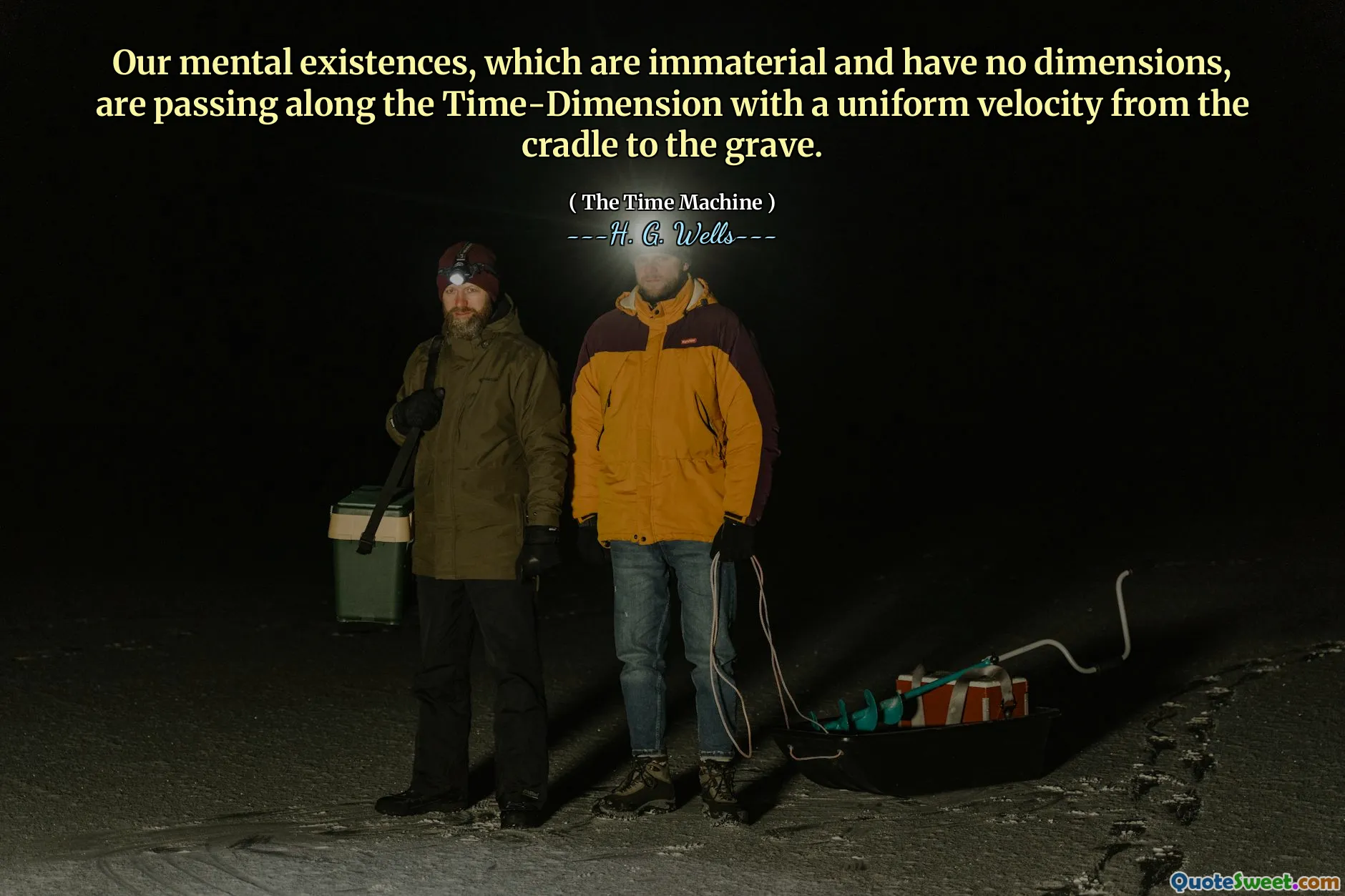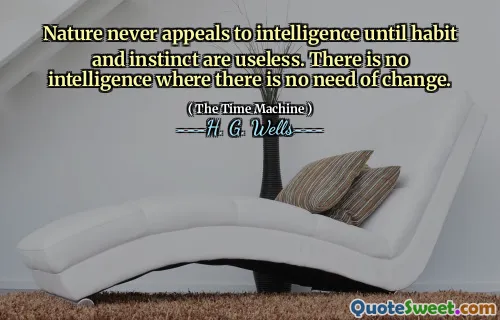
Our mental existences, which are immaterial and have no dimensions, are passing along the Time-Dimension with a uniform velocity from the cradle to the grave.
In H. G. Wells' "The Time Machine," the author reflects on the nature of human consciousness, emphasizing that our mental experiences are non-physical and lack measurable dimensions. This suggests that our thoughts and feelings exist independently of the tangible world.
Wells further explores the concept of time, proposing that our mental lives progress linearly from birth to death, akin to moving along a pathway. This perspective invites readers to consider how our psychological existence is uniquely tied to the continuum of time, shaping our perceptions and experiences throughout life.











